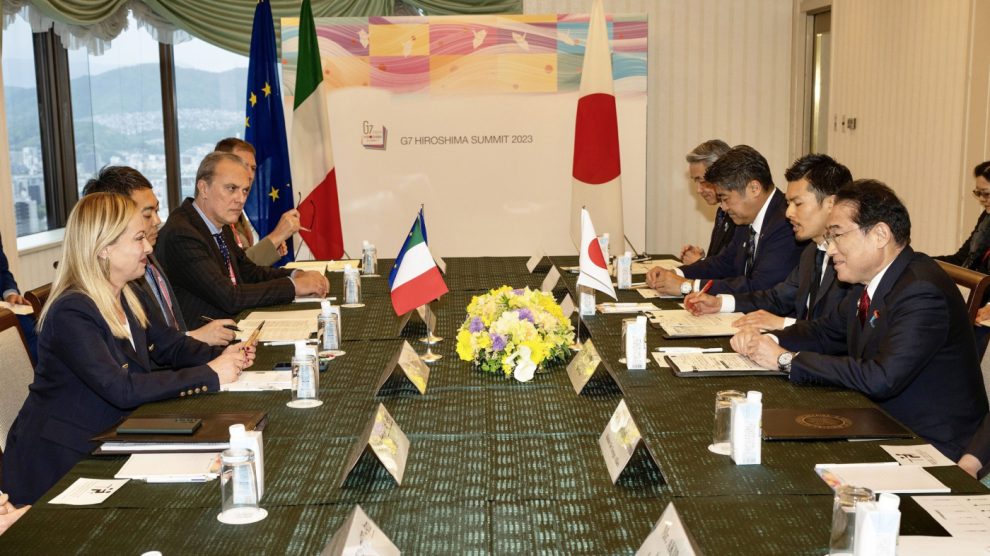The reasons behind the G-7. The Group of Seven’s summit has become “the control tower of liberal democracies, especially in times of war,” and a way to coordinate direction and goals. Thus spoke Ambassador Luca Ferrari, a G-7/G-20 sherpa at the Italian government offices, barely a week after his return from the Hiroshima G-7 Summit alongside Prime Minister Giorgia Meloni and diplomatic advisor Francesco Talò.
- Mr Ferrari was speaking at “The Role of the G7 in Promoting North-South Cooperation,” an event organised by Istituto Affari Internazionali (International Affairs Institute) in partnership with the Compagnia di San Paolo Foundation, conversing with the former’s President, Ambassador Ferdinando Nelli Feroci.
From Japan… The Hiroshima Summit was “a success in re-stating what the G-7 has become” in recent years, explained Ambassador Ferrari, emphasising how the Russian invasion of Ukraine had changed the themes and perceptions and fuelled the evolution of this multilateral forum. In this sense, the participation of Ukrainian President Volodymyr Zelensky proved the success of the forum’s “steadfastness” on Kyiv’s side.
- The Japanese one was an “Asia-centric G-7,” added the diplomat. Just at the right time, since there’s a “new actor in town:” China, which the leaders discussed extensively…
- … but not in an antagonistic manner, he stressed. Rather, talks centred on economic security. “We are very open to having commercial and political relations,” but “to regain independence, we [must] regain control of the supply chains.”
… to Italy. The Japanese G-7 was also about the global South, noted Ambassador Ferrari. “We have to reach out to these countries, help them to grow in a better way,” he explained, pitting it as a “duty” on the part of the richer countries. This concept is precisely the issue that will characterise the Italian presidency – a “Mediterranean presidency,” the diplomat explained – citing climate, energy and migration as the crucial issues.
Think continuity. The presidency transition is being conducted with “very fair continuity,” he continued, emphasising the aspects of the 2022 summit in Elmau, Germany, taken up in the Hiroshima final communiqué. The Italian commitment for the 2024 summit, which will be held in the Southern region of Apulia, is to “not undermine the legacy of the Japanese presidency.”
- Therefore, discussions will also be held on Ukraine (hoping to be in the reconstruction phase), economic security, food safety, nuclear power and gender issues.
- In addition, Italy will bring forth the theme of migration, Ambassador Ferrari explained, citing the “non-predatory” approach advocated towards the global South by PM Meloni, who is expected to present her Mattei Plan for Africa in October.




